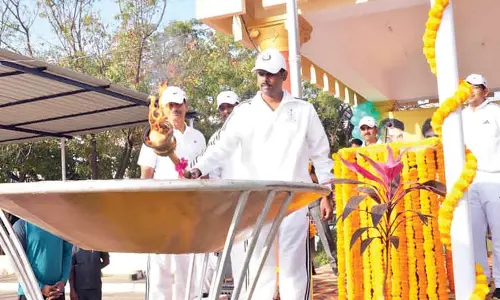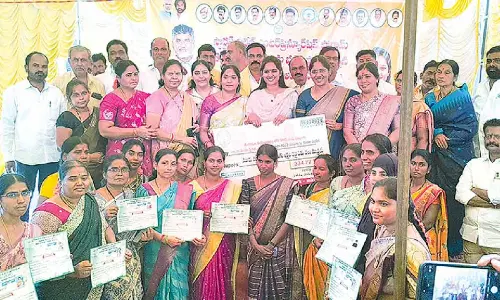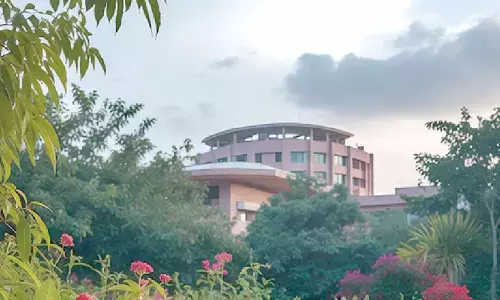New Delhi: Novel technology uses sunlight to degrade toxic liquid waste

Scientists have developed an efficient, economical, and environment-friendly technology that uses sunlight to degrade toxic liquid waste, an advance they say could significantly reduce the waste-management costs of industries.
New Delhi (PTI): Scientists have developed an efficient, economical, and environment-friendly technology that uses sunlight to degrade toxic liquid waste, an advance they say could significantly reduce the waste-management costs of industries. The technology, developed by the researchers from Lovely Professional University (LPU) in Phagwara, Punjab involves photocatalytic degradation -- a chemical reaction that involves the absorption of light -- using nanoparticles as catalysts. The technique is extremely efficient for the degradation of toxic organic chemicals produced by companies across sectors like pharmaceuticals, textiles, pesticides, paper, paints, and other chemical industries, according to the study published in the Asian Journal of Chemistry.
Liquid waste management is a major challenge for many industries globally, especially those in the manufacturing space, owing to the extensive use of chemicals, the researchers said. These industries produce several kinds of liquid wastes which can cause serious environmental damage, like water and soil pollution, ground water contamination, and landfill contamination, if not treated properly, they said. The researchers, which included Mandeep Kaur, an M.Sc. student at LPU, and Assistant Professor Chandan Adhikari, noted that a huge amount of liquid waste is produced in India due to the presence of a large number of industries. They noted that the country's Central Pollution Control Board (CPCB) has set standards and guidelines regarding disposal of liquid waste.
However, because of the high cost, most of the industries do not follow the proper waste management techniques to prevent the pollution caused by hazardous waste, they said. Currently, the industry spends about INR 120 to degrade one litre of liquid waste, according to the researchers. Apart from the cost, they noted the conventional way to degrade these chemicals has several disadvantages, for example, huge amount of energy requirement, and inefficiency. The new method developed by the researchers uses sunlight and Bismuth oxychloride (BiOCl), a new photocatalyst to purify the toxic chemicals.
"This technology uses only sunlight to destroy the dyes by degrading them," Adhikari told PTI. "As soon as the sunlight strikes the surface of the nanoparticles, it generates highly reactive oxygen species (ROS) which destroy the organic dyes," he said. ROS are chemically reactive chemical species containing oxygen, such as peroxides, and superoxides. To understand the potential of Bismuth oxychloride, the researchers conducted several studies and chose methylene blue as the model dye due to its resemblance with a number of waste chemicals produced by the industries. The study shows that 100 per cent of dye degradation can be achieved up to 20 parts per million (ppm) of dye concentration in presence of sunlight over a period four hours. This catalyst can also be reused for 4-5 cycles with efficiency retention of more than 80 per cent, the researchers noted.
The new technique can reduce the cost of liquid waste management by almost 30-40 per cent, leading to significant savings for companies, they said. The researchers noted that solid wastes are generally recycled in several steps or burned to produce energy through a process known as incineration. However, when it comes to liquid waste, it is more difficult to dispose or destroy them because most of the time liquid wastes come with a mixture of several chemicals.
These chemicals are majorly soluble in water, which causes water pollution both in surface as well as groundwater. "With this new method developed by our student, treating such waste will not only become easier but up to 40 per cent cheaper," Adhikari said. The researchers noted that after the treatment, it is sometimes a little difficult to separate the photocatalyst from the mixture. To solve this problem, they are working to develop a "magnetic photocatalyst" which will be easily separated by the application of magnetic field externally.














